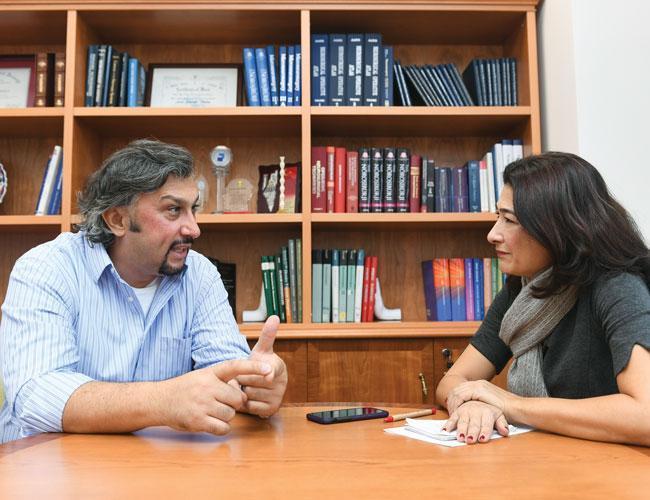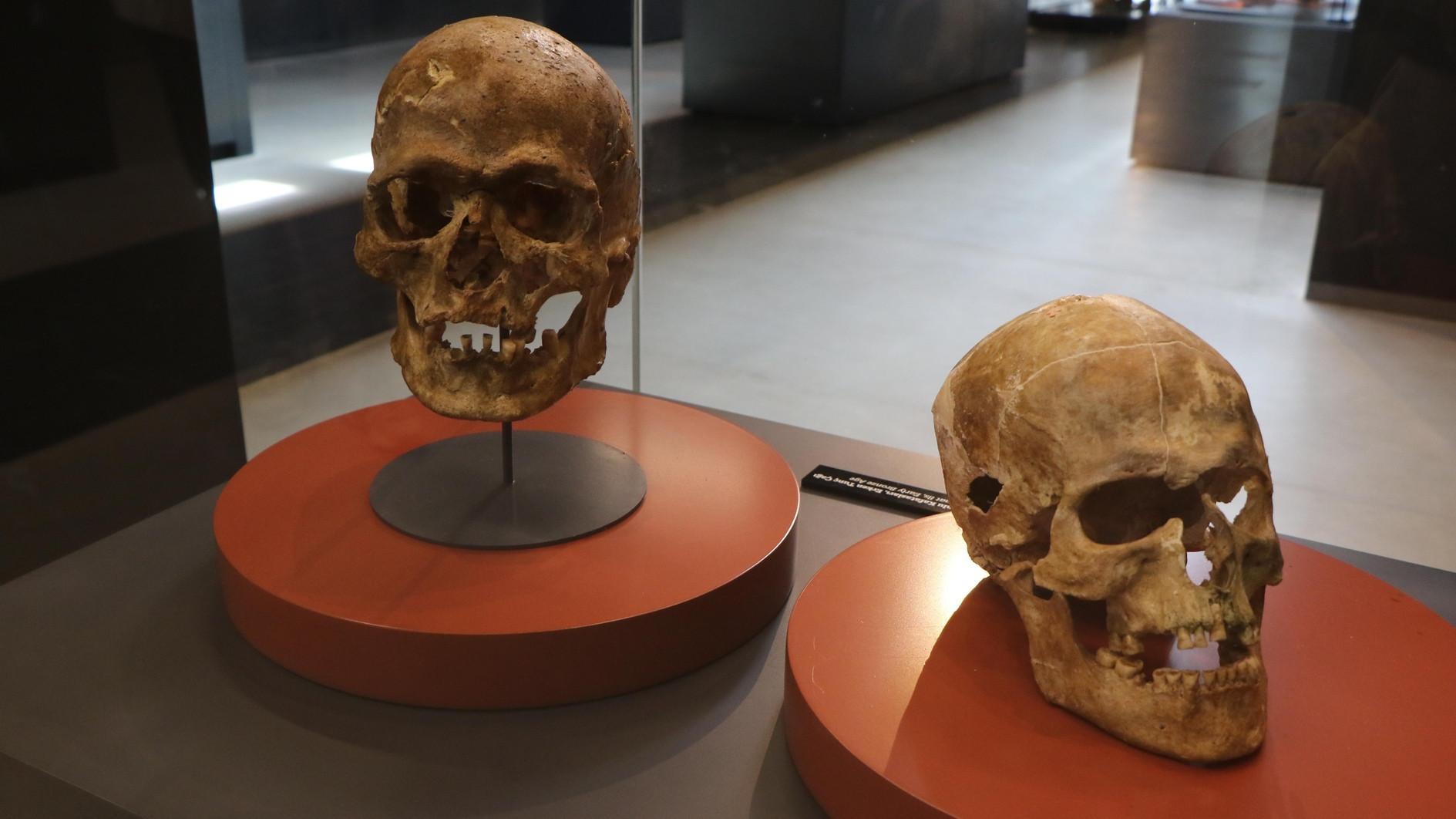Gov’t 'should forge bridges' with Turkish scientists abroad
Barçın Yinanç - barcin.yinanc@hdn.com.tr

Turkey should not aim to make all Turkish researchers abroad return home, according to an award-winning scientist who has been living abroad for some time.
“We don’t need to get everyone back; we need to keep some at top places around the world,” says Dr Metin Sitti, commenting on the government’s recent initiatives to reverse the brain drain.
Governments should reach out to their researchers and keep them connected to their home country, according to Sitti, the Director of the Physical Intelligence Department at the Max Planck Institute for Intelligent Systems in Stuttgart, who received the Koç University Rahmi Koç Medal of Science this year.
Tell us what you are working on currently.
My current focus in my group in Max Planck, is building tiny robots for medical applications; how to create swallowable or injectable, untethered, no cable type of very small devices that will get inside our body.
Like in the movie?
Yes; fantastic voyage, the science fiction; I show it in my classes.
Do you remember when you watched it?
It was shown before I was born; I watched it for my lectures.
So you came across that movie during your scientific career.
Yes. But I did watch a lot of science fiction movies that I loved and was inspired by them. The producers of those science fiction movies are now talking with me to make their movies. People from Hollywood interact with us; while doing their movies like Big Hero Six. They consult us, about our research and in that movie they use micro robots. First we were inspired by them and now they are inspired by us.
What could not be realizable in real life could be at least realized in movies and vice versa, what is being conceived in movies can get realized in real life…
It will be the case with medical robots; we visualize them first and then make our dream real.
How far are you in making it real?
We are very close in scale wise; swallowable which are being tried in big animals and there are small ones that will take time; for those to be used in clinics we need five years.
When I say Turkey and science; what do you see when you look to the half full, half empty part?
Science education in Turkey is amazing; in selective universities of course not in all of them. Top universities’ science education level is in the world class. Science practice in academic level is also great; it could be better. There is definitely potential to improve more. There are some specific universities like Koç University and others that are already doing world class scientific research. Of course they are still in small numbers. Hopefully we can increase these numbers by time. More support is needed. Science needs support. The first thing is that you need to keep excellent people here. That’s where we have problems. Our best people, like it happens in some other countries, leave at some point. You need to get them back, or to reach out to them to get their knowledge somehow back to Turkey.
The government has recently announced some incentives for those living abroad to come back. What is required to reverse the brain drain? What will it take for those who left to come back?
We don’t need to get everyone back; we need to keep some at top places around the world. Like China; they get people back but they also keep a lot of people in critical positions around the world. Science is a network; that network makes you much more active.
While you don’t need to get everyone back you need first however to connect to them; remain in touch. You can tell them how they can bridge with Turkey; in the sense of coming back fully, or coming back part time; or in the sense of them staying but continuing the collaboration. In that sense we need to be creative.
So you mean to say that people going abroad is not bad necessarily as long as you remain connected to them.
You can envisage collaboration projects for instance; then you can take advantage of the transfer of knowledge from wherever they are.
You worked in different geographies; in Japan, in America, in Europe. Are there differences in the approach to scientific research? In what sense culture factors in the scientific research.
In relations for instance. In Japan for example there are very hierarchical relations. In US it is different; there is no hierarchy. In my view horizontal model, the one with no hierarchy is the best model. But what works in one country might not work in another country.
Is there any specific reaction you get in the international platforms when you say you are from Turkey? Does it matter?
It doesn’t matter in most places; in Europe sometime you see a reaction but typically not from the educated ones; but rather from an ordinary person in the street.
On the one hand we have so much cooperation between scientists from different nationalities to make scientific discoveries; on the other we have isolationism, protectionism in many societies. Some countries are becoming inward looking, building walls.
Science is interdisciplinary, international, inter cultural. But then there is the reality of governments, politics. You cannot hire an Iranian easily even in Europe for instance. In America visa issues are making life hard for scientists from some specific countries. That’s a reality. But in general, it is minimal. In science as a country you cannot just rely on your own people; you need to attract the best people to your own country.
In what sense coming from Turkey might have affected your work?
Science has a social and cultural part. As Turks we have both eastern and western influence. Combining both (aspects of different cultures) is a great advantage we have. Turkish people are good at social communication. Having (lived with) diverse culture help us understand western thinking, Asian thinking. It is much easier for me to go to Asia and feel like Asian and to go to Europe feel like a Westerner. We can adapt faster and that makes it much easier to work with many people of diverse backgrounds.
Tell us where science is going?
What I am observing is that more and more countries are expecting science to produce more real practical use immediately. This is concerning because science is a field you need time, energy and resources. Sometimes it gives a near term quick output; real life commercial products; sometime it produces longer term outcomes. It depends how challenging and how new the ideas are. The way they fund science everywhere in the world is more to push for near term productivity, it is good for economics of the country bad in terms of science creativity because many science topics take a long time. As long as you can balance it. I don’t mean to say every scientific work should be long term. But we need to make sure that there is some support to scientific research like the one we are having in Max Planck; because we need to have the time to reach to more advanced and more difficult goals. The findings which makes the world change; that takes more time.
 WHO IS METİN SİTTİ?
WHO IS METİN SİTTİ?
Dr. Metin Sitti received BSc and MSc degrees in electrical and electronics engineering from Boğazici University, in 1992 and 1994, respectively, and a PhD degree in electrical engineering from the University of Tokyo in 1999. He was a research scientist at UC Berkeley during 1999-2002. He has been a professor in the Department of Mechanical Engineering and Robotics Institute at Carnegie Mellon University, Pittsburgh, USA since 2002.
He is currently a director at the Max Planck Institute for Intelligent Systems in Stuttgart.
His research interests include small-scale physical intelligence, mobile microrobotics, bio-inspired materials and miniature robots, soft robotics, and micro/nanomanipulation. He is the editor-in-chief of the Journal of Micro-Bio Robotics.
















